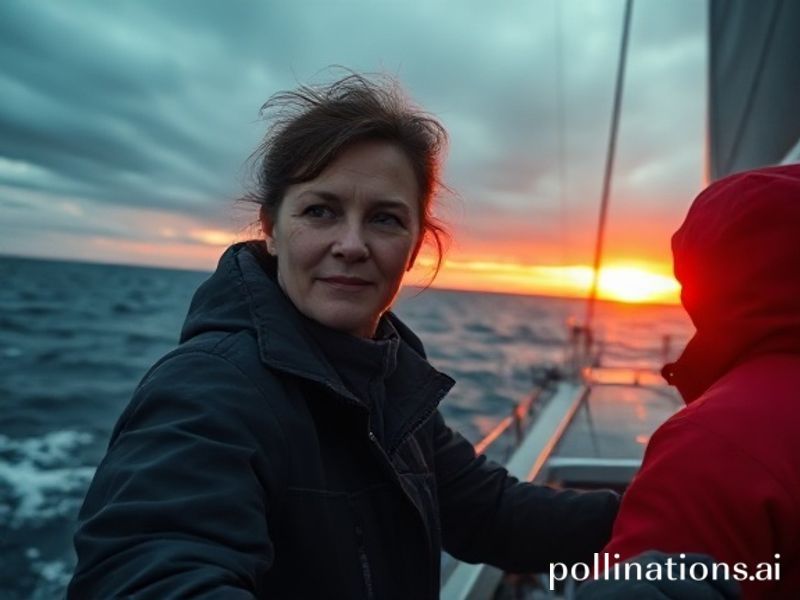Dame Ellen MacArthur: From Ocean Daredevil to Global Repentance Coach
Ellen MacArthur, the diminutive Brit who once made the planet feel like a particularly unwieldy bathtub toy, has spent the past decade quietly converting her private obsession with wind into an international guilt trip. After shattering the solo-circumnavigation record in 2005—an exploit that reduced hardened Breton fishermen to Gallic shrugs and had the Royal Navy scrambling to rename buoys in her honor—MacArthur decided that sailing around the world at 27 knots was simply too slow for the apocalypse. So she did what any sensible adrenaline junkie would: she retired from racing, bought a blazer, and began lecturing supply-chain executives on the thermodynamic horrors of single-use yogurt lids. The transition from wet-suited daredevil to boardroom Cassandra was so seamless it almost felt choreographed by the same PR agency that convinced us avocado toast causes housing bubbles.
Globally, the Ellen MacArthur Foundation has become the polite, PowerPoint-wielding equivalent of a UN peacekeeping force for capitalism’s id. While governments bicker over carbon credits like toddlers trading Pokémon cards, the foundation has signed up more than 500 multinationals—including Nestlé, Coca-Cola, and, in an act of cosmic irony, ExxonMobil—to pledge fealty to the “circular economy.” Translation: they promise to stop turning the planet into a flaming dumpster, provided someone else designs the recycling bins. The concept has been downloaded, repackaged, and localized from Lagos to Lausanne, spawning knockoff initiatives with names like “CirculaRio” or “LoopDeLoop Shanghai,” each adding its own cultural garnish to the same basic pitch: please stop throwing things away, we’re running out of “away.”
The international implications are deliciously hypocritical. Europe trumpets MacArthur’s model as proof that post-industrial societies can have their cake and compost it too, while quietly outsourcing toxic textile shredding to coastal Ghana. China, never one to miss a trend, has rebranded the circular economy as “Ecological Civilization 2.0,” a phrase that sounds like a smartphone update but actually means massive state investment in urban mining—because nothing says sustainability like sending battalions of workers to pry rare earth magnets out of discarded e-scooters. Meanwhile, the United States treats MacArthur’s ideas as a menu from which to order only the least disruptive dishes: enthusiastic adoption of reusable coffee cups, studious avoidance of anything that might impede quarterly growth. The result is a planetary potluck where everyone brings a salad and nobody admits they’re still microwaving the main course.
The broader significance? MacArthur has managed to weaponize optimism itself. By reframing the climate crisis as a design flaw rather than a moral failing, she has offered boardrooms a sin-eater they can expense: sign the pledge, keep the private jet. It’s the kind of elegant solution that makes cynics reach for stronger gin. Yet the numbers, those stubborn little traitors, suggest the model is leaking at the seams: global virgin plastic production continues its merry ascent, and the Great Pacific Garbage Patch now has its own Instagram influencer. Still, every Davos panel needs its talisman, and MacArthur—still compact, still earnest, still sounding like she’s apologizing for the end of the world—fits neatly between the NFT auction and the quinoa bar.
In the end, perhaps the greatest trick Ellen MacArthur ever pulled was convincing the world that a person who once surfed icebergs for sport could also teach it to knit its own parachute on the way down. Whether the parachute opens is another matter entirely, but the view on the descent is spectacular—especially if you ignore the rapidly approaching ground.







